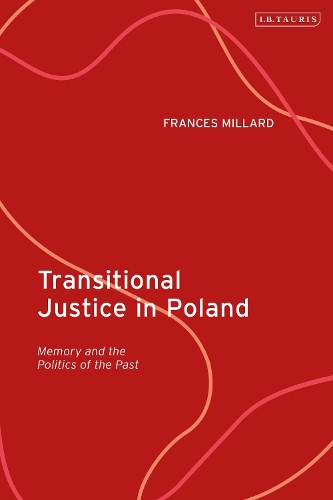
Transitional Justice in Poland: Memory and the Politics of the Past
(Hardback)
Available Formats
Publishing Details
Transitional Justice in Poland: Memory and the Politics of the Past
By (Author) Professor Frances Millard
Bloomsbury Publishing PLC
I.B. Tauris
28th January 2021
United Kingdom
Classifications
Tertiary Education
Non Fiction
Political structures / systems: democracy
Law: Human rights and civil liberties
European history
Far-left political ideologies and movements
340.11509438
Physical Properties
Hardback
272
Width 156mm, Height 234mm
558g
Description
In this study of the mechanisms of transitional justice in Poland, Frances Millard asks: How does society come to terms with its past How should it punish the perpetrators of oppression and acknowledge its victims In the former communist countries of Central and Eastern Europe the task of answering these questions came down to the need to eliminate the communist parties' hold over the state, the economy and society in order to move towards democracy. Millard argues that the key step in achieving this was uncovering the truth about the previous regime's past, prosecuting the perpetrators of past crimes and providing compensation and restitution for its victims. Through the specific case of Poland, Millard provides a comprehensive assessment of the mechanisms and institutions used to achieve this, such as lustration, law enforcement through a Constitutional Tribunal and institutions dedicated to dealing with the past such as the Institute of National Remembrance. Crucially, these processes have assumed new significance in recent years after the Law and Justice Party came to power in 2015, using transitional justice as a tool of political control which has enabled the restructuring of Polish democracy.
Reviews
In this insightful and detailed account Frances Millard deftly charts and explains the twists and turns of Polands three decades of debates about transitional justice. The book deserves to be on the shelves of all scholars and students concerned with how states and societies deal with difficult pasts, but also those interested in the consequences that decisions to punish, prosecute or draw lines have on the health and fate of democracy. * Tim Haughton, University of Birmingham, UK *
This is an extremely detailed and wide-ranging account of attempts to achieve transitional justice since the collapse of the Polish communist regime in 1989. It is a meticulously-researched piece of history writing, which explains the chequered progress of transitional justice with reference to developing political circumstances and without recourse to simplistic, one-sided explanations. Millard provides a thorough analysis of the legislation regarding each separate strand of transitional justice. * Anne White, UCL, UK *
Author Bio
Frances Millard is Professor Emerita in the Department of Government, Member of the Human Rights Centre and former Dean of Social Sciences at the University of Essex. She is twice winner of the George Blazyca Prize of the British Association of Slavonic and East European Studies for the best book on Central and Eastern Europe.
